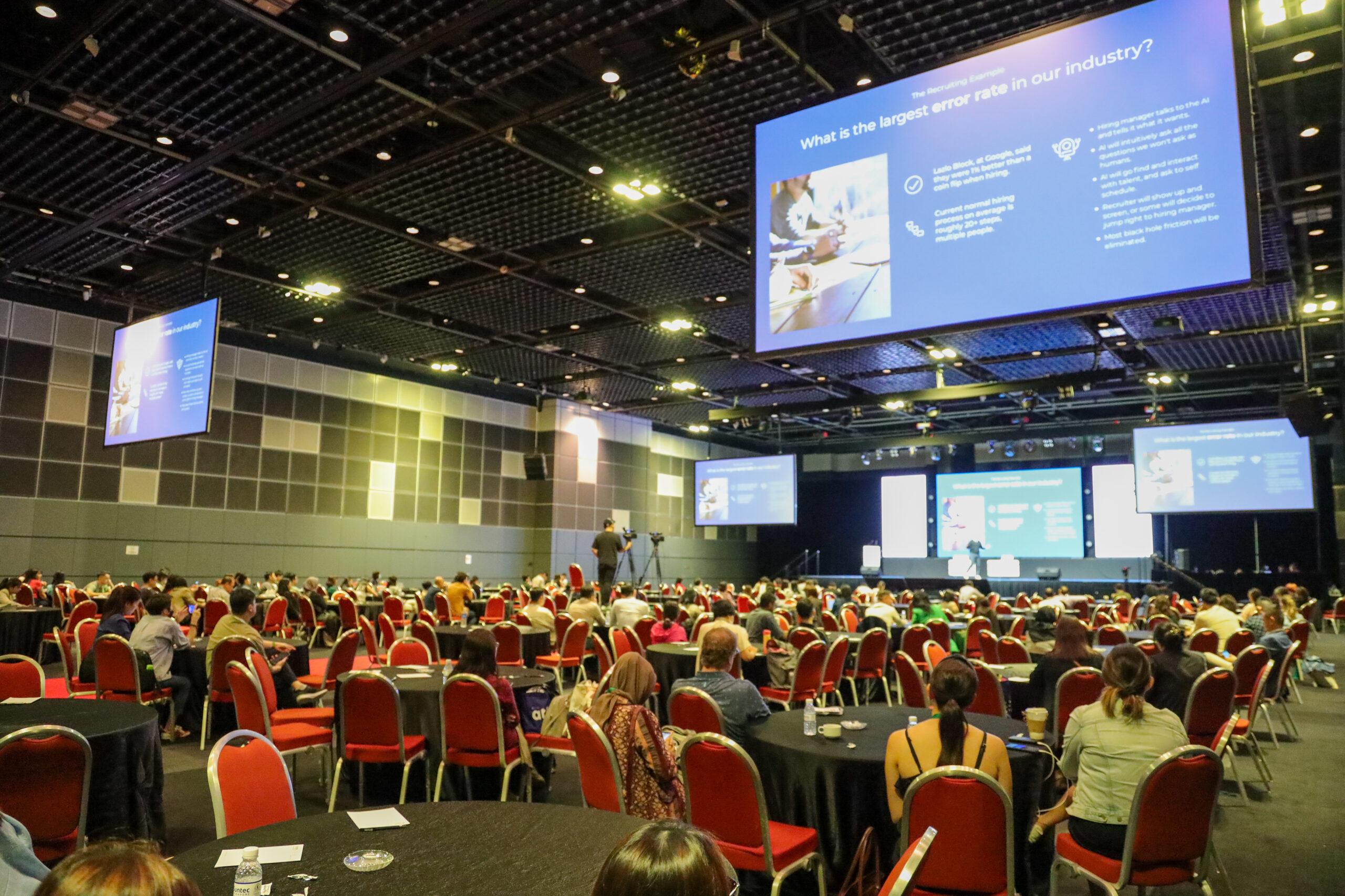Mental health matters – It’s time to normalise mental health awareness
- Shawn Liew
The evolving workplace continues to challenge organisations and leaders to pivot and innovate, particularly in how they support employee experience and wellbeing. In today’s operating climate, mental health is no longer an afterthought but should instead at the top of every HR leader’s agenda.
In this exclusive interview, Sian Hooper, APAC HR Co-Head, Bloomberg; and Kelvin Cen, Head of Southeast Asia, Bloomberg, shares with HRM Magazine Asia some of the key initiatives Bloomberg has put in place to empower employees to overcome mental health challenges in the workplace.
While more organisations are beginning to prioritise mental health in the workplace, well intentions may not always match up with actual execution. Can you share with us the initiatives Bloomberg has put in place to address employee mental health?
Sian Hooper: In response to the changing mental health needs of employees post-pandemic, Bloomberg has taken a proactive approach in how we address and support mental health. In our ways of working, we recognised our region takes on a relatively high volume of evening calls to collaborate with global teams, which can impact wellbeing. So, we have started redefining what global collaboration looks like – not to get rid of global calls altogether given the value they bring but encouraging teams to think strategically and introducing different collaboration tools, to reduce evening calls for our side of the world.
We also revisited our employee benefits programme post-pandemic to make sure our policy was meeting employees where they were at. The Employee Assistance Portal (EAP), which is a short-term counselling and referral service, is traditionally offered online or across the phone. Acknowledging the different ways in which employees prefer to connect, we introduced on-site EAP sessions at some of our offices across APAC, to support those who benefit more from face-to-face interactions.
There is also the not inconsiderable challenge of overcoming the mental health stigma in Asia. How can organisations encourage an inclusive and transparent work culture that openly discusses mental health and support for affected employees?
Sian Hooper: Whilst there is certain truth that the topic of mental health still holds stigma in many places across Asia, we are encouraged to see progress in numerous markets and are optimistic of positive change. One of Bloomberg’s initiatives that helped us simultaneously break down barriers on normalising mental health and build an inclusive work culture is the This is Me Asia (TiMA) campaign. Originally created in the UK, we partnered with Community Business to roll out TiMA across APAC. TiMA provides a platform for sharing personal stories from persons with disability or mental health conditions with the broader goal of normalising these conversations in the workplace. Now in its third year, we continue to see positive ripple effects of its impact. Many of our leaders and employees who spoke openly about their experiences through TiMA have organically become mental health ambassadors and confidants for their teams and this has helped encourage open conversations across the company.
 “Whilst there is certain truth that the topic of mental health still holds stigma in many places across Asia, we are encouraged to see progress in numerous markets and are optimistic of positive change.” – Sian Hooper, APAC HR Co-Head, Bloomberg.
“Whilst there is certain truth that the topic of mental health still holds stigma in many places across Asia, we are encouraged to see progress in numerous markets and are optimistic of positive change.” – Sian Hooper, APAC HR Co-Head, Bloomberg.
From a broader inclusion point of view, Bloomberg has also taken actionable steps to embed D&I into our operations and DNA. Inclusion is built into how we develop and evaluate our leaders. This includes offerings that provide learning on D&I fundamentals, forums for open dialogue amongst leaders on D&I topics and platforms to apply lessons learned. All this is to ensure it is at the forefront of how we nurture talent and hold leaders accountable.
We are big champions of empowering our employees to drive change both internally and in the communities they are a part of, from the bottom up. Our D&I Communities, or employee resource groups, are initiated and led by employees and are open to all, regardless of how one identifies. They are a core part of our culture, helping advance the interests and needs in the office location and creating an inclusive environment where all our employees can thrive.
With employees potentially unwilling to share their mental health problems due to a fear of reprisals, managers have an increasingly important role to play. What is Bloomberg doing to identify signs of mental health and provide better support for employees?
Sian Hooper: We know that leaders and colleagues play a significant role alongside HR in spotting and supporting mental health challenges. At Bloomberg, we offer Mental Health First Aider training, a programme that equips identified employees (not just leaders) in each office with skills to recognise common signs of mental health challenges, provide initial support and guide those in need towards appropriate professional help. Much like the fire warden on the office floor, these First Aiders are easily identifiable to encourage people to reach out in case of need.
We offer awareness sessions for all employees to make sure they have a foundational understanding of mental health. For managers, we host closed-door mental health roundtables which provide an open space for them to discuss mental health challenges observed in their teams and provide them with the opportunity to seek advice, guidance and support from an external psychotherapist, HR, as well as their peers.
Kelvin Cen: One of the things at Bloomberg we value most is the trusted relationship between our business and HR business partners. Our HR leaders have a seat at the table with our business leaders and work hand in hand on matters across the business, including how they can together boost employee wellness to further drive productivity that contributes to the bottom line.
We have seen most impact through empowering and investing in our leaders, so they have the right tools to be role models and navigate mental health issues. Many of our senior leaders have taken our newer leaders under their wing to guide them on how to lead in a challenging market. Through role modelling, many of our new leaders have become more comfortable holding the ropes and having delicate conversations with their teams. We also observed another positive outcome – newer leaders are reverse mentoring senior leaders in demonstrating a different form of empathetic leadership through their ability to connect to and relate with their direct reports. It all comes down to this: when leaders embody empathy and create psychological safety for their teams, it trickles down to all levels of the organisation.
What strategies would you recommend for organisations to build a holistic approach to normalising mental health awareness?
Kelvin Cen: There is no one-size-fits-all in normalising mental health in the workplace. Each company is unique and would benefit from exploring different approaches, testing and refining their initiatives and continuously having open, honest two-way conversations with employees.
READ MORE: Creating the space to be open about mental health in the workplace
At Bloomberg, we have engaged all our different functions and levels across the firm because we are of the view that mental health awareness is not the responsibility of HR or any one team, but that of every single one of us. Fostering collaboration between our HR business partners and the business, building an inclusive culture, equipping our leaders with the tools and skills to create psychological safety, empowering our employees and D&I Communities and making mental health part of everyday conversations have together helped us move the dial in normalising this important topic in the workplace.
 “At Bloomberg, we have engaged all our different functions and levels across the firm because we are of the view that mental health awareness is not the responsibility of HR or any one team, but that of every single one of us.” – Kelvin Cen, Head of Southeast Asia, Bloomberg.
“At Bloomberg, we have engaged all our different functions and levels across the firm because we are of the view that mental health awareness is not the responsibility of HR or any one team, but that of every single one of us.” – Kelvin Cen, Head of Southeast Asia, Bloomberg.
We have seen the fruits of incorporating both a top-down and bottom-up approach and building an inclusive culture for all. This ensures all voices are heard and no one is left behind.
There will always be more work to be done and feedback to take on board. We are cognisant this is a journey and are committed to partnering with the industry and broader community to build a more holistic and inclusive workplace for all.
To find out more about how organisations can go about navigating and normalising mental health in the workplace and create, maintain and nurture an engaged and healthy workforce for tomorrow, join Sian Hooper and Kelvin Cen at CHRO Singapore 2024, which is taking place on September 18.
For more news and analysis on the latest HR and workforce trends in Asia, subscribe to HRM Asia and be part of the region’s largest HR community!






